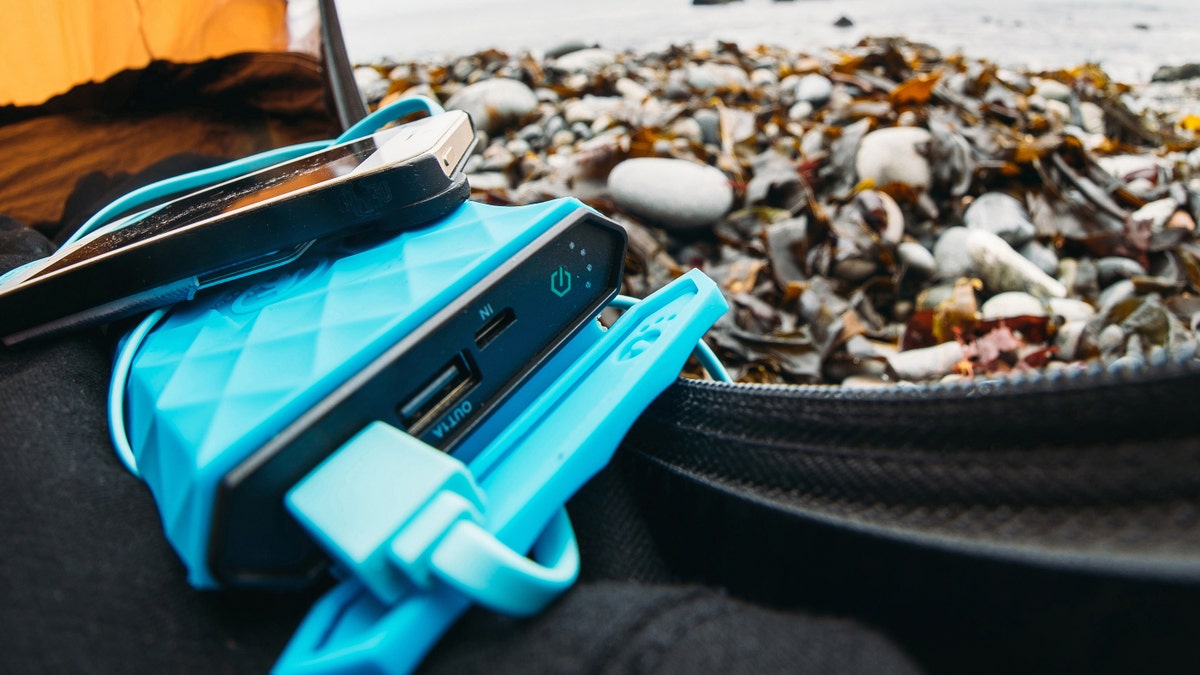
Salta, Argentina - ExOfficio Spring Summer 2015 (ExOfficio)
Vacation season is in full swing and tech companies, like most businesses, are trying to appeal to our wanderlust.
The biggest pitch so far has come from wireless carrier T-Mobile, which will eliminate roaming charges (for voice—and data) in Canada and Mexico starting on July 15. But there's plenty of other personal technology to consider, no matter where you're headed this summer.
Waterproof power
Smartphones seem to run out of power just when you need them most — like when you have to call up to the house for more cold drinks to be ferried to the beach. So, an external battery pack is a necessity when traveling. After all, what good are those roaming charge-free T-Mobile minutes if your phone is dead?

Kodiak Plus - Waterproof Powerbank (Outdoor Tech)
There are countless chargers and mini power boosters on the market. In fact, I even saw some stacked next to the cash register in a women's clothing store recently. But to weather anything, including rainy camping trips and beach blanket basking, there's the $100 Outdoor Tech Kodiak Plus Portable Rugged Power Bank. Its rechargeable battery can fully charge a smartphone more than three times before it needs to be plugged in and the 10,000 mAh pack can endure being submersed in a few feet of water for up to 30 minutes — certainly long enough to handle being dropped in a cooler full of beer.
Digital warning signs
Radar detectors, controversial as they may be, have been part of the road culture since the 1960s Fuzzbuster. Keeping up with the times, today's models work with GPS for location-based alerts and pair with smartphones over Bluetooth. Some models piggyback on crowdsourced warnings about accidents and have updated databases listing photo enforcement locations.
Avoiding a speeding ticket isn't the only reason for using a radar detector. They can also warn drivers of unseen hazards, such as broken-down vehicles around a curve being assisted by law enforcement or, in the case of red light detectors, particularly dangerous intersections where added caution should be exercised. The Escort Passport Max2 is a $600 top-of-the-line model with built-in GPS and a database of fixed photo enforcement locations. The more modestly priced Cobra SPX 7800BT is just $250 and while it doesn't have built-in GPS, it can be used in conjunction with a free app to use a phone's GPS for red light alerts. It even integrates warnings with navigation and traffic data to ease your highway travails.
Technical clothing
Even the shirt on your back is getting more technical. Various treatments and materials are being incorporated into the latest travel wear to keep you cool and bug free during those summer country vacations. Lyme disease is common in many parts of the country, so after picking several ticks off myself following some outdoor chores this spring, I donned a pair of ExOfficio BugsAway Sandfly Pants (priced at $80) along with a matching shirt. The clothing is imbued with an insect repellent — permethrin — to keep ticks and West Nile-carrying mosquitoes away. The EPA says permethrin in clothes is “unlikely” to cause harm to humans and is not absorbed as easily as other insect repellents, such as diethyltoluamide or DEET.
The Sandfly pants are quick-drying, featherweight, and have a UPF of 30. I found them remarkably comfortable, although sweat did show through on extremely hot days when mowing a hill and stacking wood. The material is supposed to be odorless, although I could swear I could detect a hint of cedar, and the treatment should last for up to 70 washings. The good news? After several informal tests in bug-infested woods I did not have to take out the tweezers. Now that makes for a much more relaxing vacation.








































